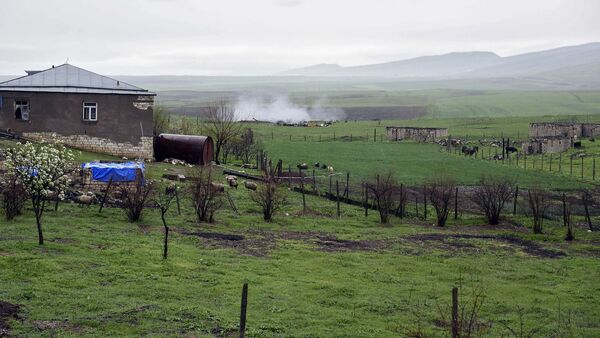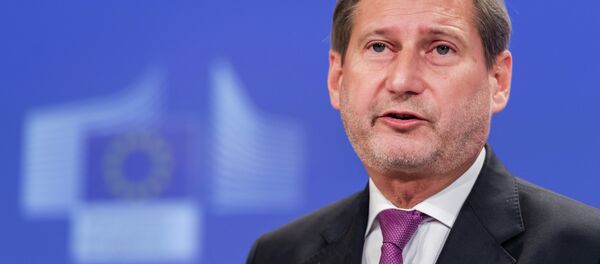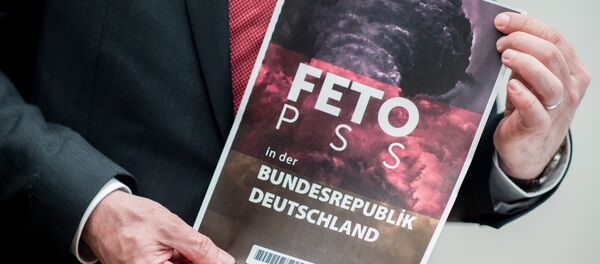"The foreign ministers of [Armenia and Azerbaijan] have been instructed; they are likely to meet soon in order to continue the negotiation process, which should be result-oriented", the Azerbaijani leader stressed.
Earlier on Friday Aliyev held his first official meeting with Armenian Prime Minister Nikol Pashinyan in the Austrian capital of Vienna to discuss the situation in Nagorno-Karabakh, a landlocked region in the South Caucasus with a predominantly Armenian population. The region is officially viewed as Azerbaijani territory.
READ MORE: Armenia Backs Resolving Nagorno-Karabakh Conflict Within OSCE Format — PM
Aliyev and Armenian Prime Minister Nikol Pashinyan agreed to continue direct dialogue on the Nagorno-Karabakh issue.
Both Aliyev and Pashinyan once again expressed their commitment to "strengthening the ceasefire and improving the mechanism for direct communication", the statement continued, adding that the leaders also agreed to work on measures "in the humanitarian field".
Pashinyan also commended on Friday his meeting Aliyev in Vienna. "I positively appraise this meeting. I cannot say that a breakthrough, a revolution, an epoch-making event has happened, but it is important that a process has begun that allows us to talk about our agenda and views", Pashinyan said as quoted by the tert.am media outlet.
READ MORE: Azerbaijani President: Integrity Issue to Determine Karabakh Settlement
The meeting resulted in nobody winning or losing as it has happened before, the prime minister noted and underlined that both sides should aim for stabilizing the situation instead of "harming each other".
The area is still subjected to tensions, with the recent briefly taking place in early April 2016. Reacting to the exchange of hostilities between Armenia and Azerbaijan, countries and organizations across the globe, including the OSCE Minsk Group, the UN, Russia and a number of European states, worked hard to persuade both parties to stop fighting immediately and agree to truce.
READ MORE: Azerbaijani MP Warns of Likely Armenian Civil War, Calls for Reclaiming Karabakh
The situation in the region is currently monitored by the OSCE Minsk Group which unites efforts to find a peaceful solution to the conflict. The group is co-chaired by Russia, the United States and France.
The OSCE Minsk Group, which is co-chaired by Russia, the United States and France, was created back in 1992 to find a peaceful solution to the conflict in the landlocked region in the South Caucasus with a predominantly Armenian population.




